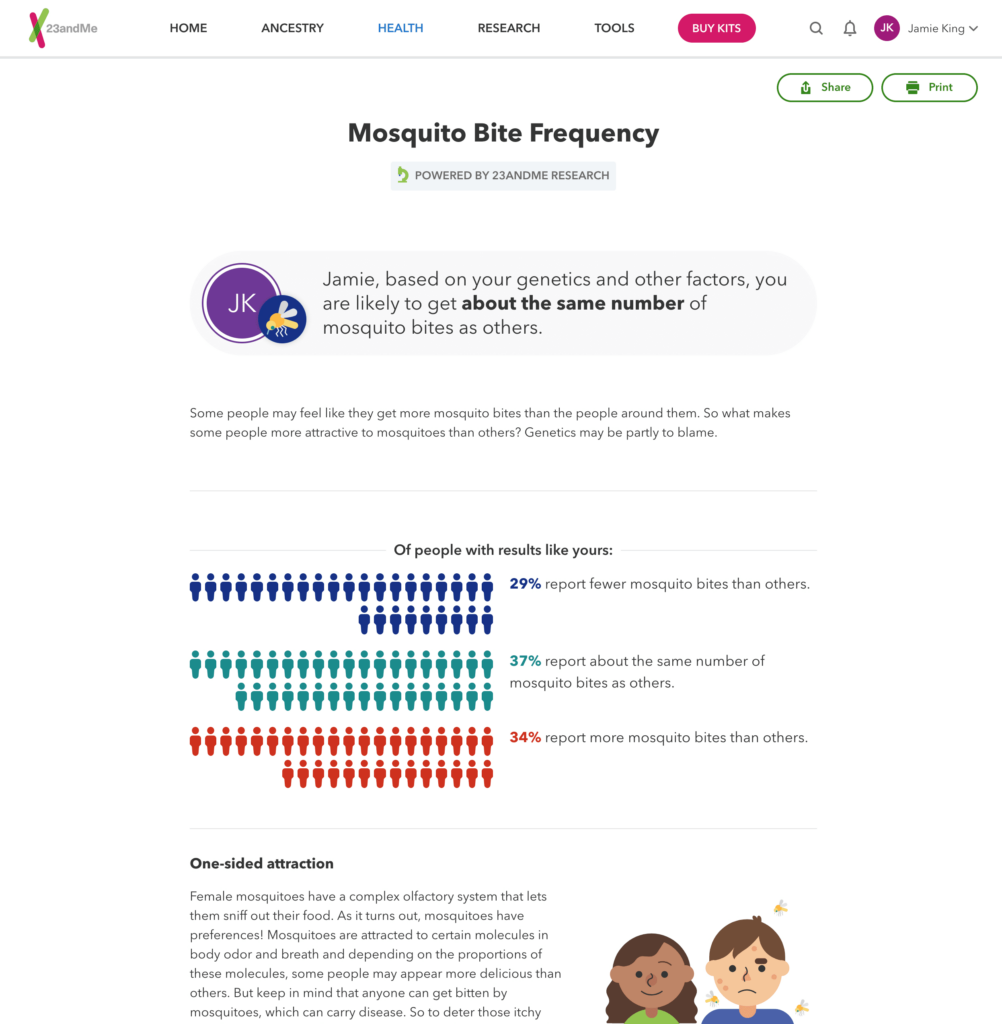It’s summertime, and with warmer temperatures and longer days come mosquitos.
Those pesky insects are more attracted to some of us than others, and we may have genetics to thank for that, according to researchers.
So why is that?
Let’s dive into the science of mosquito attraction and see how 23andMe can help determine if you’re more likely to be on the mosquito menu.
First off, it’s not just by chance that mosquitos bite some people more than others. Genetics may explain at least some of that difference, and it helps explain why some react more severely to bites than others.
Mosquitos home in on specific molecules in body odor and breath; the more of these molecules we have, the more enticing we are to mosquitos. In addition, for some people, the annoyance goes beyond being more attractive to the bugs; our genetics can also impact how we react to mosquito bites with larger and itchier welts.

You probably already know if you’re a mosquito magnet, but 23andMe’s Mosquito Bite Frequency report can tell you if your genetics may explain why you’re more attractive to the bugs than others.
The report uses a statistical model based on almost 300 genetic variants associated with mosquito bite frequency and sensitivity. Using this statistical model that includes genetic and non-genetic factors 23andMe can report whether you are more or less likely to be attracted to mosquitos and whether you’re more sensitive to their bites than others.
Anatomy of a mosquito bite
When a mosquito bites, it pokes through the skin of its victim and releases a substance to prevent clotting, making it easier to feed on the blood.
That substance, in turn, triggers an immune response in people as their bodies release histamine to fight the foreign substance. The size of the welt, or “wheel,” left behind and the severity of the itch varies in part based on a person’s genetics.
As noted above, genetics plays a role in those different reactions, something 23andMe researchers have compiled data on.
So why should I care?
Whether you care about getting bit or not, understanding the genetics of mosquito attraction may be more important than you imagine.
That’s because, for millions of people, mosquitos are more than just a nuisance; they are one of the deadliest creatures on earth. Hundreds of thousands of deaths a year are due to mosquitos transmitting diseases such as Dengue fever, West Nile Virus, Zika, and malaria.
According to the World Health Organization, malaria alone accounted for more than 619,000 deaths in 2021. Understanding how people respond to bites and why some of us are more susceptible to getting bit could help stop the spread of these serious insect-borne diseases.
Itching to Learn More?
If you’re a 23andMe customer and want to understand better your genetic propensity toward more or itchier mosquito bites, sign in and check out your Mosquito Bite Frequency report.
Not yet a customer? Find out more about all that 23andMe has to offer.




